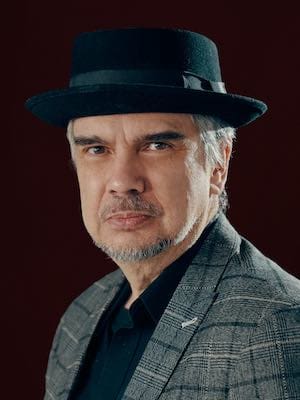Conservatives question my salvation, while liberals question my intelligence. This is what it means to be a Latino or Latina who insists on understanding reality from their social location; of reading the Bible with their own eyes; of doing ethics from the margins of society.
Because many Hispanics experience the presence of the Divine in their lives different than Christian conservatives, there is a concern that many Latino/as may not really be “saved.” This might explain why the nations of our origins, who have larger percentages of the population claiming a Christian faith, have so many missionaries sent from the United States attempting to proselytize them. For some, Hispanic America is worshipping the “wrong” Jesus. The task is not conversion to Jesus, but conversion to the Euroamerican Jesus. Meanwhile, for some liberal Christians, Hispanics lack intellectual sophistication. The community’s emphasis on the spiritual (including indigenous strains), or the authority of the Scriptures in the lives of some Latina/os, is taken as proof that Hispanics are stuck in some lower stage of cultural development.
For years I have taught in one of the most religiously conservative colleges in the nation, and in one of the most liberal seminaries in the country. My experiences with these institutions, which seem to resonate with other scholars of color (not just Hispanics), have led me to the conclusion that unless the scholar of color assimilates to the dominant academic paradigms (and even then), they will always be viewed with suspicion regardless of how many books and peer review articles they publish. Likewise, unless Latina/o ethicists adopt Eurocentric paradigms, unless they learn to explain reality through the lens of white male ethicists, unless they forsake their social location and assimilate to the dominant culture, their work will normatively be seen as suspect.
Unapologetically, I, along with other liberationist ethicists, fail to fit into the neat Euroamerican labels of “conservative” or “liberal.” Not surprisingly, we are dismissed as a “flaming liberal” at conservative institutions due to our emphasis on radical social justice, and branded “conservative” at liberal institutions because we take our faith seriously. Many religious-based institutions are baffled by those of us who do liberationist-based work. During my tenure at a religiously conservative college I constantly struggled with students, administrators and faculty who questioned my religious commitment. Students would gather at my office door and lay hands on it, praying for my salvation. “Do I know Jesus as my personal Lord and Savior?” was a common question I would hear. Their insulting inquiry revealed that if I approach ethical analysis from my social location, in their minds, I cannot really be a Christian.
At the liberal institution where I teach, students dismiss me as either an angry Latino or a Hispanic who still clings to superstition. Failure to operate from the Eurocentric cannon, or the insistence on participating in the spiritual practices of one’s community of color, is viewed with suspicion by many liberals. My intelligence is challenged by students (as well as by some faculty and administrators) when I allow the spirituality of marginalized communities to inform and impact my scholarship.
As a man of faith whose first act when coming to the office is to light a candle to my Virgencita del Cobre, who enjoys visiting Pentecostal churches where I can “dance” in the Spirit and maybe—if truth be told—even speak in tongues, I attempt to function as an organic intellectual rooted in the experience of my people. Only then do I find the work I do as an ethicist relevant. My Euroamerican colleagues who rely more on the so-called European Enlightenment Project usually view the spirituality of scholars of color as lacking in academic rigor. The quest for “academic excellence” becomes code-language for fluency in Eurocentic meta-narratives.
To do ethical analysis as a liberationist means, by definition, the creation of an uncomfortable space where complicity with oppressive structures that are normalized can be explored and challenged. Creating such an environment assures such a scholar that they will never be a “popular” teacher.
Quite the contrary. Because no student (or faculty or administrator for that matter) cherishes the prospect of unmasking how the present status quo is designed to privilege them, the scholar of color who relentlessly pushes such issues can expect push-back, at times manifested in dismissive, if not hostile ways. This is true with both conservatives and liberals.
Miguel A. De La Torre is director of the Justice & Peace Institute and associate professor of social ethics at Iliff School of Theology in Denver.
Professor of Social Ethics and Latinx Studies at Iliff School of Theology in Denver, Colorado, and a contributing correspondent at Good Faith Media.

